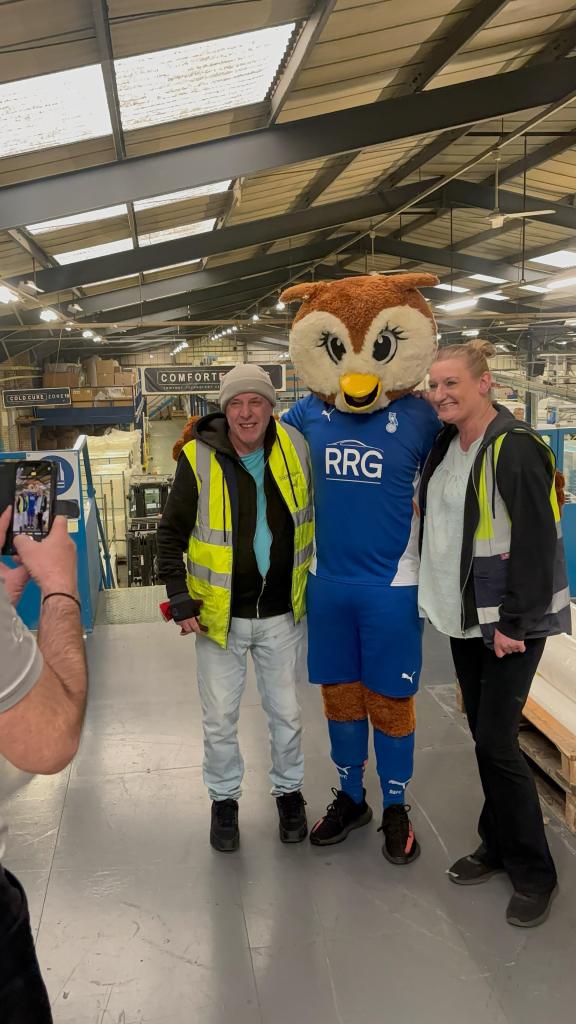‘Work Team’
No better time to reflect on Oldham (and as my good friend Kashif reminds us #IToldEmOldham).
The latter hashtag reflecting on all the good things about the Town and the fact it’s really going places – including Wembley this Weekend!
I am, and only ever will be, a Stockport County fan #scarfmyfatherwore. But Oldham Athletic has been close to my heart, since I first worked with Sean Jarvis and Neil Joy to save the Club in 2004. Twenty years later, I returned and still head up commercial and fundraising for Oldham Athletic Community Trust. I have to express gratitude at the Club and Trust for welcoming me – and I like to think that I have repaid that faith, with more exciting times to come. This gratitude starts with Owner, Directors, Trustees and Staff – including my cherished colleagues. Frank Rothwell, our Owner, sent me a message today with an audio of a song: “Owls eat the Shrimps”. I actually liked it. I just pray that the Club can defeat Southend United on Sunday enabling a return to the EFL. County stayed excluded and in the oblivion of Non League Football for 11 years. We even fell one step further to National League North.
The Town is booming and the 23,000 following from this North West Borough deserve to be back in the ‘bigger time’.
Having stepped, slightly out of my comfort zone and bought clothing to wear, representing another Club. I now only have the difficult decision to decide, which Latics top to wear. I have decided that whatever bucket hat I wear on the Day, it will have pinned on my newly acquired badge of Frank.
This is the Year of the Bird. Let’s hope this omen results in bringing the ![]() home.
home. ![]()
![]()
![]()

















